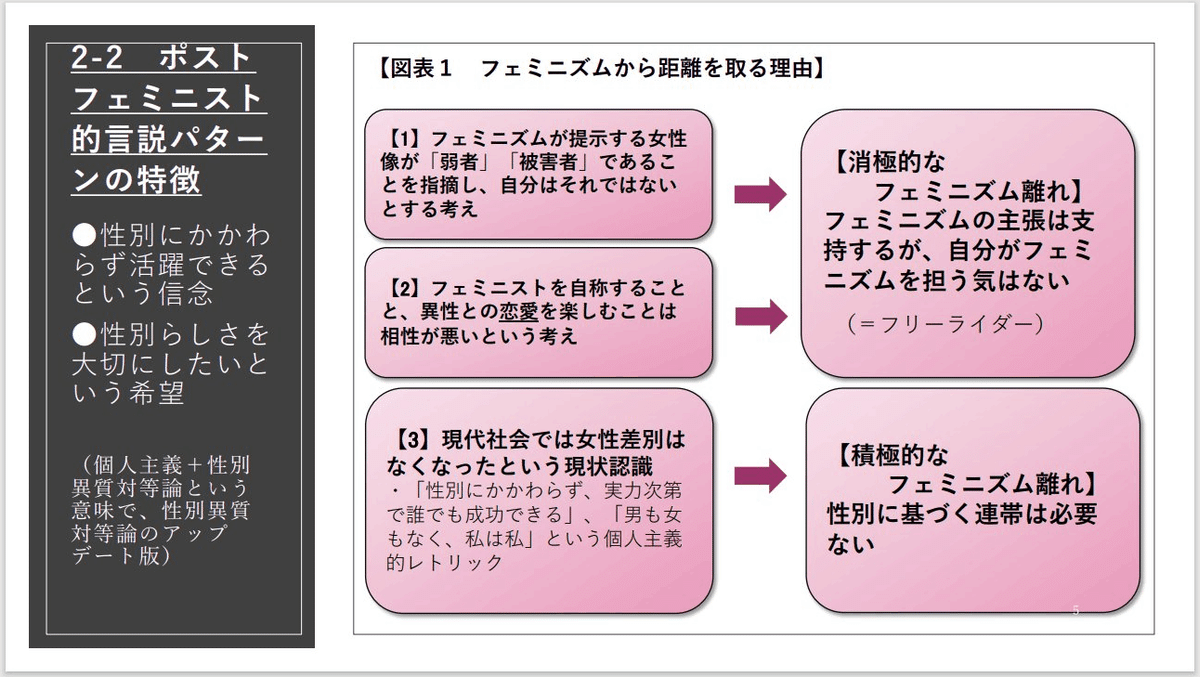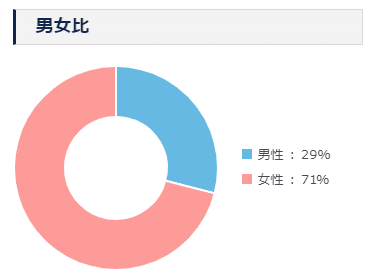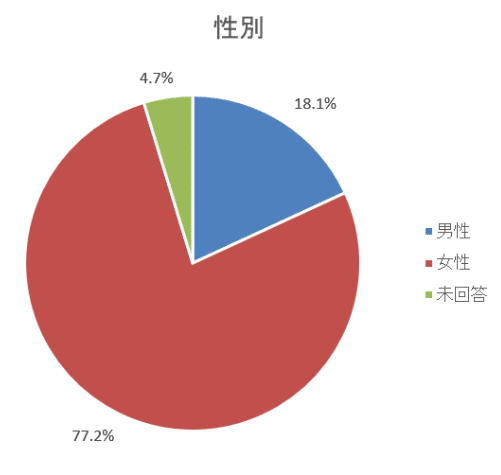
Why Japanese young women turn away from Feminism? : the true two reasons
*This article uses machine translation. I am not good at English. Sorry!
In 2019, Yuki Takahashi, sociology and gender researcher and part-time lecturer at Musashi University and other universities, published an article titled "The Identity of the Discomfort Young Women Are Feeling in 'Turning Away from Feminism'" on Gendai Business Online.
Takahashi repeated almost the same arguments at a symposium in 2021. (You can download the materials she prepared and used here.)

She cites three reasons why young women leave feminism.
Young women point out that the image of women presented by feminists is that of the "weak people" and the "victim" and think that they are not.
Young women believe that calling themselves feminists will put them at a disadvantage in their relationships with men.
Young women believe that discrimination against women has ceased in modern society.
It is an interesting topic, but as a young woman myself ( I'm 20s woman) who has been experiencing the very "Turning away from Feminism", I felt that the most important "Two reasons of turning away from Feminism" were not written in Takahashi's discussion. I would like to clarify these points in this article.
Takahashi states that young women's disengagement from feminism is due to a "misunderstanding of feminism" and that they can "really go hand in hand," but in my conclusion, that is impossible.
First of all, I am a "female party with big breasts" and a "lover of Moe-culture".
People who call themselves feminists on social media have actively targeted the above two groups of people for bashing.
First reason: bashing for big-breasted women
Specifically, when an image that Saya Akane was distributing as free material was used in an advertisement, there was a strong bashing from feminists who advocated "gender equality" and "elimination of gender discrimination" in their profiles. They said the photo "emphasized breasts and was inappropriate" and "should not be used by companies."

However, as you can see, there is no exposure skin, and rather than "emphasis," it simply shows the natural size of her own breasts. It is normal attire for walking outside without any problems.
Regarding the bashing from feminists, Saya Akane asked, "Aren't feminists crushing diversification by trying to embrace it?" she countered with Manga. She then tweeted, "I wish the world were a place where everyone could do the work they love."
今回の騒動(?)が落ち着いたのと
— 茜さや (@sayahana1) January 29, 2020
少し私の感想を間違って捉えてる方がいたり、上手く流れが分からないというDMが来ていたのでまとめさせて頂きました🧸
伝えたかった事は"?"が沢山浮かんだよという事と
私自身としてはみんながが何も気にせずやりたいお仕事が出来る世界であってほしいなと思います pic.twitter.com/Vc1vZC9GA2
It is a very moderate question and expression of opinion as a party. She was not using foul language, nor was she overly accusing feminists.
However, the bashing of Saya Akane by feminists was even worse. Some of the tweets were nothing more than vicious accusations and discrimination against women with large breasts, such as "You can even have your breasts surgically reduced in size, but not doing so is selling your sex" and "(Saya Akane) is prostituting herself because she often eats fine dining."
Furthermore, even some time after the uproar, Saya Akane was subjected to abusive epithets from feminists, such as "a typical dick-dandle woman" and "She has been trying to profit by exploiting men's sexual desire.", "Princess of nerds." (last one is derogatory term for women who are not popular in general but are liked only by a narrow range of nerds.)
I would like to remind you. This is the photo she provided to a company.

The reality is that not a small portion of those who call themselves or others feminists are directly or indirectly complicit in this bashing of large-breasted women.
Furthermore, tied to the "Uzaki-chan blood donation poster," which became a hot topic shortly before the disturbance, Junko Iwabuchi made comments such as "big breasts are deformation" and "big breasts are associated with mental disability," which drew loud protests from women with large breasts.
Whether they are "real" or "true" feminists in the academic sense is not the issue at this time. Anyway, these are statements by people who are recognized as feminists in Japan. Nor do famous feminists (academics, legislators, lawyers, etc.) criticize them. They always affirm or ignore them. If these facts are known, they are enough reason for large-breasted women to leave feminism.
Second reason: bashing for Moe-culture
Among the targets that feminists bash is Moe-culture. Apparently, the perception that "Moe-culture" = "Male culture" has taken root, especially among the older generation, and is regarded as an object that can be safely bashed.
However, a very large number of women, both creators and consumers, participate in Moe-culture.
First, 70% of illustrators are women in Japan. (Even if not all illustrators draw Moe-illustrations.)

In another survey, the male/female ratio of illustrators by age group in Japan was as follows, with the majority being young women in their 20s and 30s.

Some data indicate that 70% of comic book artists are women in Japan. In addition, more than 500 female adult comic book artists have been identified, and some say that they account for about 60% of all adult comic book artists.

Of course, not all of the creators are working with "Moe". These findings cannot be overly generalized.
However, among the famous Moe-creators, there are also many women. Can you tell which of the following illustrations are by male creators and which are by female creators?

OK, I tell you the answer.
The "ALL" illustrations are by female creators.
Although we were unable to find data on the fan base of Moe-culture that comprehensively surveyed the male/female ratio, we did find that "Love Live!" and "THE iDOLM@STER", which are often thought of as "male-oriented" games, also have a large number of female fans.

Women as creators and consumers of Moe-culture are not rare in Japan.
It is estimated that many young women, especially those who are considered to be "turning away from feminism," are the creators and consumers of much of the "Moe-culture" involved.
In other words, bashing the Moe-culture is almost directly an attack on these women.
Japanese feminists do not admit their mistakes when they discover that the illustrations they have bashed as "products of male culture" are the work of female creators. Instead, they logically resolve the issue. Feminists call the female creators "honorary males." They are not "true" women.
Japanese feminists insist that they are only asking for Moe-illustration to be zoned, not banned. However, if they are zoned, there will be that much less space for activity. It threatens the economic base of creators and the fans who look forward to their works.
Zoning is only a last resort when it is unavoidable. Anyone with some knowledge of the creative industry knows that zoning is not a moderate measure. If they cannot be sold in general bookstores and convenience stores, some creators will be forced out of business. Zoning should be limited to explicit sexual materials and operated with caution.
If the "compelling reasons" are sufficiently rational, then zoning is inevitable. However, what was actually bashed was the "Uzaki-chan Blood Donation Poster" and the "Love Live Orange Poster," which hardly even show any skin.

Regarding the "Uzaki-chan Blood Donation Poster," some Japanese feminists called for a boycott of blood donations. It seems that it does not matter if they put the lives of other people, who are completely unrelated to Moe-culture, at risk in order to oppose the Moe-culture.
Additionally, Rinka Tojo, a VTuber who is active in one small Japanese city, was also the subject of bashing. Alliance of Feminist Representatives (A team of feminist legislators) sent a letter of protest for the VTuber's video teaching children traffic rules. The video is below.
Rinka Tojo was designed by a woman (Kei Aduma). The production company's CEO is a woman (Setsuko Itakura), and of course, the voice actress is a woman.
Is there enough of a problem with this video to warrant an official protest by the legislators? Feminists argued that the navel is visible, the skirt is short, and thus induces sex crimes.
Female creators and fans involved in "Moe-culture" do not support feminism. For them, there are many reasons to oppose feminism, but so far not a single reason to agree with it.
Conclusion
I am a woman with large breasts and a fan of Moe-culture.
Feminists have persistently bashed both and still do.
What exactly is "misunderstood of feminism" as Yuki Takahashi says it, out of all the bashing that feminists have done against big-breasted women and Moe-culture?
Records of almost all bashings are kept. Nor, to my knowledge, have any scholars or legislators who are publicly known as feminists called for these bashings to stop.
Rather, the reality is that they have been complicit in bashing women while also implicitly and explicitly affirming the calling of "honorary males" and "dick-dandle women".
The reason young women in Japan leave feminism is simple.
Because there are tons of reasons why we should oppose it and none why we should agree with it.
Because feminists do not represent our profits and interests.
Because feminists deprive us of our enjoyment.
Thank you for reading this article!
If you would like to donate me, please click the button below. (500 yen)
ここから先は
¥ 500
この記事が気に入ったらチップで応援してみませんか?
